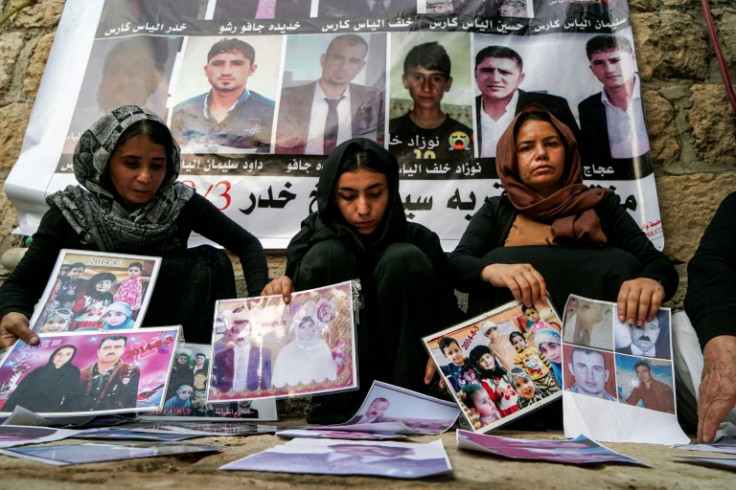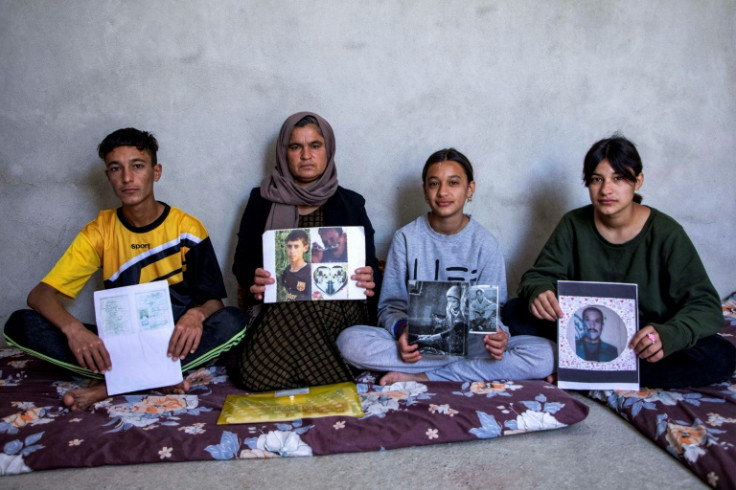
This year marks ten years since Islamic State (IS) fighters killed, raped and enslaved thousands of the Yazidi population, an ancient religious minority that had lived in parts of Iraq and Syria for nearly 6,000 years.
After declaring the caliphate in August 2014, the Islamic State for Iraq and Syria (ISIS) launched a genocidal campaign against the Yazidis as it sieged parts of Iraq and Syria.
Most of the Yazidi population are of Kurdish descent, the largest ethnic group in the world without a homeland of their own. For years, ISIS has accused the Yazidi population of being heretical devil worshippers, describing the group as an "unbeliever community."
Sinjar, a small town in Iraq's north, was the first Yazidi homeland to be sieged by the terror group.
More than 400,000 people were forced to leave their homes, and tens of thousands fled to Mount Sinjar, where they suffered acute food insecurity and were cut off from medical treatment and water.
The Yazidi residents took refuge in the mountains for weeks before coalition forces provided them with a safe passage to Syria.
In 2013, Sinjar's population, predominantly Yazidi, was estimated at 88,023. The town is yet to recover from the atrocities committed by ISIS.
While the exact number of people who were abducted, sold and killed by ISIS is unknown, the United Nations (UN) and the NGO organisation Yazda said that the Islamic State killed some 5,000 Yazidis – primarily men and older women.
The groups also reported that roughly 7,000 Yazidi women and girls were targeted for sexual slavery and trafficking as part of ISIS' "forced conversion campaign" throughout Iraq. Around 5,000 boys were also sold as child militants whom the group would train.

After launching a rescue effort almost immediately, almost a decade later, the Yazidis who escaped the terror group are still awaiting justice for the crimes they have endured.
Although 100,000 Yazidis have returned to their homeland in Sinjar, the UN says that at least 3,000 women and children enslaved by the IS fighters are still being sold, raped, killed and forced into marriages.
According to the Free Yazidi Foundation, since fleeing the IS fighters, small children have reportedly forgotten their Kurdish dialect and approximately 180,000 Yazidis remain internally displaced.
Many women have since escaped ISIS after falling pregnant as a result of the sexual violence that they were victims of.
Forced to abide by Iraqi laws, which identify any newborn as a Muslim, hundreds of thousands of women have chosen to remain in refugee camps in the Kurdistan Region of Iraq out of fear that the Yazidi community would reject their child.
Yazidis have also been displaced all over the globe, resettling in Western nations, including the UK and the US.
Abid Shamdeen, born and raised as a Yazidi in Sinjar, said: "Family and community connections were very important in our day-to-day lives. But, many families have been torn apart. A part of a family is in Germany, but the rest is in Iraq, in the camps."
Regarding the ongoing sex trafficking of Yazidi women, Shamdeen added: "There are multiple, multiple challenges... With the 10th anniversary approaching, it's just really difficult for so many to move on because a lot of these issues have not been resolved."
Home to an estimated 200,000 Yazidis, in 2021, Germany became the first country to convict ISIS members of their genocidal campaign against Yazidis. Since then, German courts have passed three verdicts.
In 2023, the UK joined Germany by formally acknowledging the atrocities committed by the terror group as an act of genocide.







